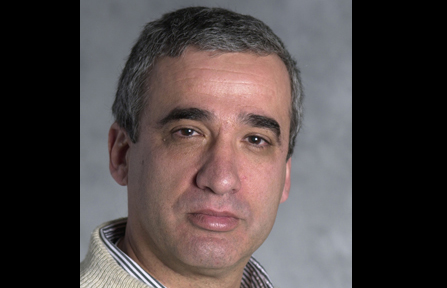- Seminar
Location:
Speaker:

Abstract: Power generation systems in general, and solar power generation systems in particular, are complex, involving multiple components. Each one of these components can influence the performance and cost of the overall system. So how can we decide where to focus our development efforts?
What are the fundamental functional requirements of a power generation system? How do we determine the principal parameters with the greatest influence on the performance and cost of the overall system? Finding the answers to these questions is the first step in the development of a competitive system.
In this talk we will first review the functional requirements of a power generation system. I will then argue that the Levelized Cost of Energy (LCOE), which determines the breakeven point of electrical energy sale price, should be used as the ultimate parameter of performance and economic feasibility of all power generation systems (fossil, nuclear and renewable based plants). The main parameters affecting the LCOE of solar power generation systems will then by identified and challenges for new research and developments will be discussed.
Bio: Prof. Karni has 20 years of research and development experience with keen interest in the development of new methods for concentration, absorption, conversion, transmission and storage of concentrated solar energy, and implementing these methods in genuine solar power-conversion systems.
Karni was Assistant Professor at the Mechanical Engineering Dept. of SUNY at Stony Brook, N.Y. from 1984 to 1989 and has been at the Weizmann Institute since 1989. He was a visiting professor at the University of Minnesota in the summers of 1994 and 1996, and at Johns Hopkins University in the 1998-98 school year. In January 2002, Prof. Karni was promoted to head the Weizmann’s Energy Center and he also oversees the entire Institutes’ solar program.
Prof. Karni's main research interests center around the utilization of concentrated solar energy at high temperatures. His pioneering work includes the development of a novel concentrated sunlight absorber, a high-pressure receiver window, a new Volumetric solar receiver, a non-imaging secondary optics device, and a revolutionary concept for a non-isothermal high-temperature solar receiver.
A common denominator among the aforementioned methods is the ability to operate at concentrations, temperatures, and pressure levels far above those previously obtained with solar-driven devices; these abilities match or exceed the requirements of state-of-the-art power generation, chemical processing, and propulsion systems. Present studies include several methods of solar-driven hydrogen production and a new concept for integrating solar and energy storage, which could significantly reduce the cost of solar power generation.
Prof. Karni and his team have conducted several extensive comparative studies of solar and other renewable technologies over the past 10 years.
Two industry-led commercialization programs based on Prof. Karni’s concepts are currently underway. Prof. Karni has published over 70 scientific articles, and holds 8 international patents.

